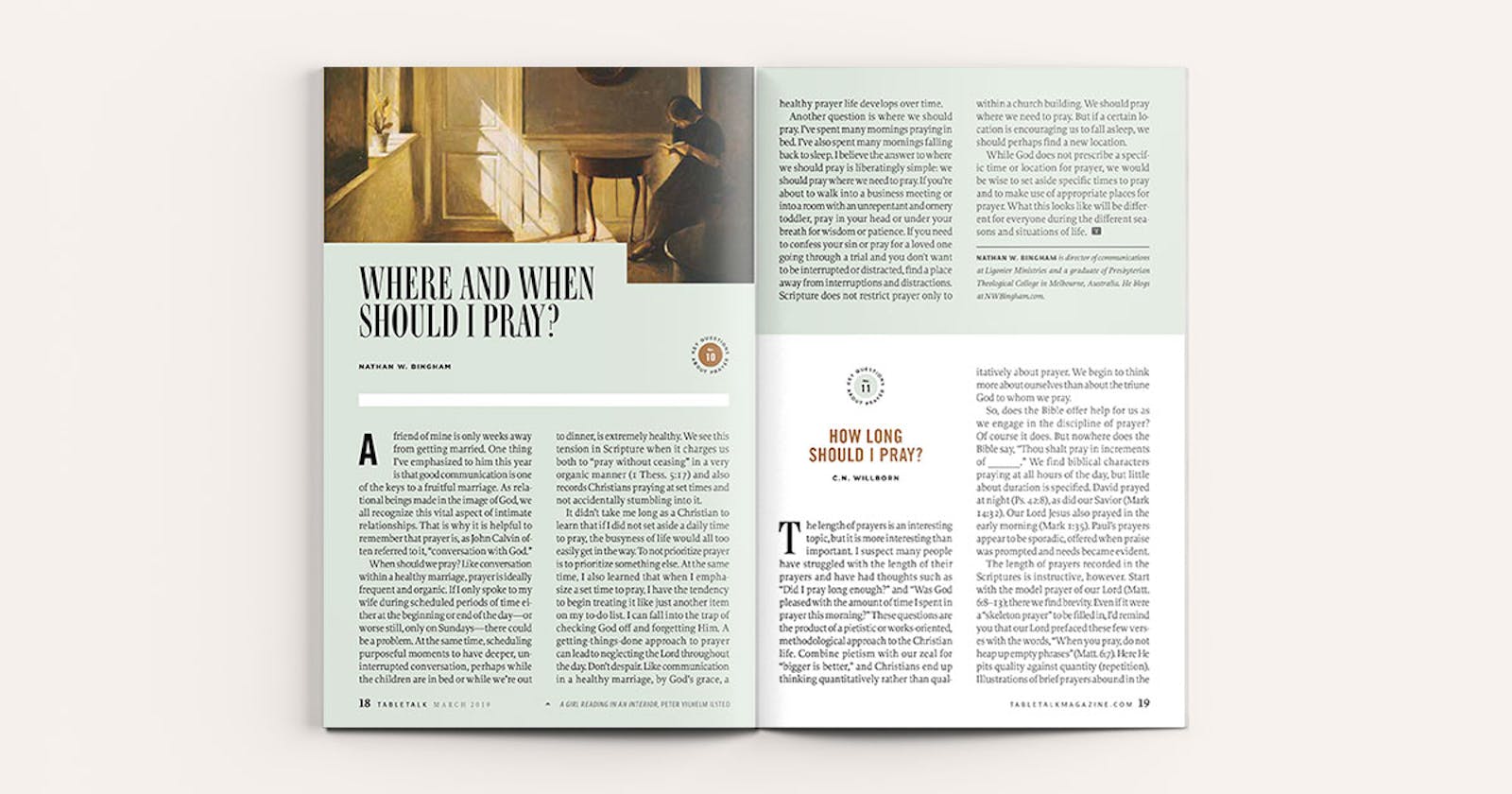
Request your free, three-month trial to Tabletalk magazine. You’ll receive the print issue monthly and gain immediate digital access to decades of archives. This trial is risk-free. No credit card required.
Try Tabletalk NowAlready receive Tabletalk magazine every month?
Verify your email address to gain unlimited access.
A friend of mine is only weeks away from getting married. One thing I’ve emphasized to him this year is that good communication is one of the keys to a fruitful marriage. As relational beings made in the image of God, we all recognize this vital aspect of intimate relationships. That is why it is helpful to remember that prayer is, as John Calvin often referred to it, “conversation with God.”
When should we pray? Like conversation within a healthy marriage, prayer is ideally frequent and organic. If I only spoke to my wife during scheduled periods of time either at the beginning or end of the day—or worse still, only on Sundays—there could be a problem. At the same time, scheduling purposeful moments to have deeper, uninterrupted conversation, perhaps while the children are in bed or while we’re out to dinner, is extremely healthy. We see this tension in Scripture when it charges us both to “pray without ceasing” in a very organic manner (1 Thess. 5:17) and also records Christians praying at set times and not accidentally stumbling into it.
It didn’t take me long as a Christian to learn that if I did not set aside a daily time to pray, the busyness of life would all too easily get in the way. To not prioritize prayer is to prioritize something else. At the same time, I also learned that when I emphasize a set time to pray, I have the tendency to begin treating it like just another item on my to-do list. I can fall into the trap of checking God off and forgetting Him. A getting-things-done approach to prayer can lead to neglecting the Lord throughout the day. Don’t despair. Like communication in a healthy marriage, by God’s grace, a healthy prayer life develops over time.

Another question is where we should pray. I’ve spent many mornings praying in bed. I’ve also spent many mornings falling back to sleep. I believe the answer to where we should pray is liberatingly simple: we should pray where we need to pray. If you’re about to walk into a business meeting or into a room with an unrepentant and ornery toddler, pray in your head or under your breath for wisdom or patience. If you need to confess your sin or pray for a loved one going through a trial and you don’t want to be interrupted or distracted, find a place away from interruptions and distractions. Scripture does not restrict prayer only to within a church building. We should pray where we need to pray. But if a certain location is encouraging us to fall asleep, we should perhaps find a new location.
While God does not prescribe a specific time or location for prayer, we would be wise to set aside specific times to pray and to make use of appropriate places for prayer. What this looks like will be different for everyone during the different seasons and situations of life.
